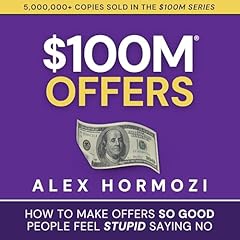
Simplify
How the Best Businesses in the World Succeed
No se pudo agregar al carrito
Add to Cart failed.
Error al Agregar a Lista de Deseos.
Error al eliminar de la lista de deseos.
Error al añadir a tu biblioteca
Error al seguir el podcast
Error al dejar de seguir el podcast
 Exclusivo para miembros Prime: ¿Nuevo en Audible? Obtén 2 audiolibros gratis con tu prueba.
Exclusivo para miembros Prime: ¿Nuevo en Audible? Obtén 2 audiolibros gratis con tu prueba.Compra ahora por $20.03
-
Narrado por:
-
Roger Davis
For the past 40 years, Richard Koch has wanted to uncover the simple, elemental, elegant and parsimonious principles that are needed to create great new businesses. To qualify, a principle must be so overwhelmingly powerful that anyone can reliably use it towards extraordinary results. Is there any principle that can tell you how to do that consistently and with a high chance of success?
Working with venture capitalist Greg Lockwood, his coauthor on Superconnect, and supported by research from the elite firm of OC&C Strategy Consultants, Koch has the answer.
The principle Koch and Lockwood have discovered behind extraordinarily successful businesses is simplifying. Some simplify on price - take Ryanair's budget flights, which still take you from A to B but so cheaply that nearly everyone can afford them, multiplying the size of their market - and some simplify on proposition, such as Apple's decision to cut down on the number of their product lines and focus on perfecting only a few devices. With case studies of famous companies in all different industries from finance to fast food, the authors show how anyone can analyse their business' potential to become a simplifier and which route they should take to maximise the impact.
©2017 Richard Koch, Greg Lockwood (P)2017 Little Brown Book GroupLos oyentes también disfrutaron:




















Las personas que vieron esto también vieron:





reducing options improves economies of scale
Se ha producido un error. Vuelve a intentarlo dentro de unos minutos.
Yes we get the Why, more on the How please
Se ha producido un error. Vuelve a intentarlo dentro de unos minutos.
surprising elaboration on traditional strategies
Se ha producido un error. Vuelve a intentarlo dentro de unos minutos.
Good
Se ha producido un error. Vuelve a intentarlo dentro de unos minutos.
Just silly, and slightly condescending.
Irritating accents
Se ha producido un error. Vuelve a intentarlo dentro de unos minutos.


